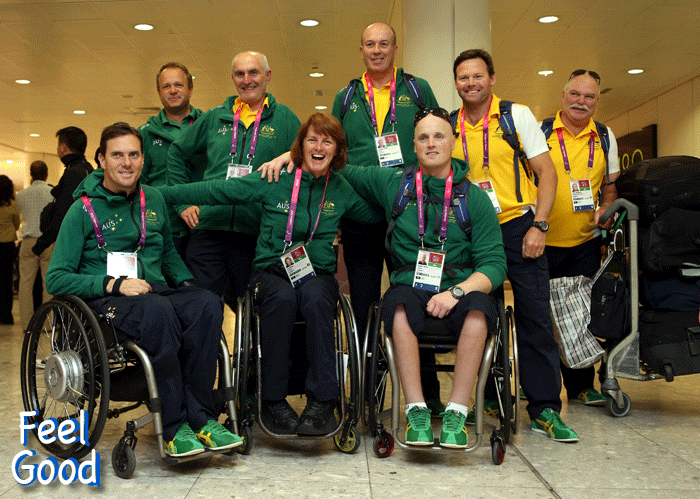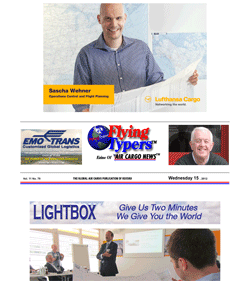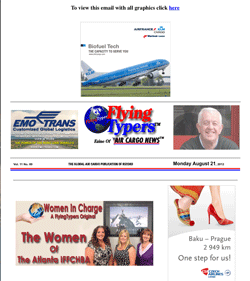 |
 |
|
| |
||
|
Vol.
11 No. 81 Wednesday
August 22,
2012 |
|
Oliver
Evans, Chief Cargo Officer at
Swiss WorldCargo, feels good
about family, his job, and the
business he has worked in for
most of his life.
|
 |
With
new flights to Newark and elsewhere,
Swiss has some definite standout
markets in 2012 that deserve
some focus from the cargo community.
“As
ever, Swiss WorldCargo’s
specific and well-known strategy
and focus is enabling us to
outperform the market and gain
share, just as it did in 2009.
“Although
Newark is to be honest a challenge
(as we expected) we have been
enjoying some respectable loads.
In contrast, Beijing has reached
“cruising altitude”
as we call it (i.e. full loads
in both directions) much earlier
than we expected and has been
a positive surprise.
“All
in all the market is tough and
oversupplied, so that rates
have been under some pressure
in many markets.
“No
one area stands out; results
are uneven within regions as
well as across regions, reflecting
the thin market. Nevertheless,
we did reach our targets for
the 1st half-year, and remain
cautiously optimistic,”
said Mr. Evans.
As for the rest of 2012, as
always, it’s all up in
the air (pardon the pun).
“Air
cargo develops in line with
global trade, and I need not
tell you the assessment of economists
and sundry pundits.
“The
fact is that consumer confidence
remains very low, and uncertainties
regarding the Euro are not about
to go away, anymore than belligerent
noises about e.g. Syria.
“I
have said numerous times internally
as well as externally that we
simply have to be ready for
different scenarios from a stable,
rather weak market to worsening
conditions due to economic or
political turmoil or to a steadily
or even rapidly improving outlook
due to solutions in some of
these areas,” said Mr.
Evans.
“I
was bowled over when I went
to Beijing with our inaugural
flight and met our local team:
all young and eager, mostly
women, very proficient in English,
anxious to learn, proud to be
working for a company like Swiss,
and above all smiling.
“These
are of course all characteristics
that we like to instill in our
teams, but to see all of those
qualities just after recruitment,
before internal trainings and
team-building start to have
their effect, is a measure of
the overwhelming drive that
is transforming this giant country,
and turning it into a natural
and responsible leader of the
modern world.
“We
Europeans and Americans need
to make room for them in the
cockpit,” said Mr. Evans.
 For
Swiss, the message remains the
same.
For
Swiss, the message remains the
same.
“The
wonderful thing is that after
celebrating our first 10 years,
we have no need to change our
strategy or key messages, and
people are just asking us to
continue and go even further
on our chosen path. But that’s
just it, by continuing on a
path that we have made our own,
we keep on discovering new things
or areas for improvement, so
we are keyed up and ready for
challenges.
“It’s
hot in the European or North
American summer, so take your
shirt off (or at least roll
up your sleeves) and get on
with the plentiful work at hand,”
said Mr. Evans.
When
it comes to GACAG, where others
may have some negative words,
Oliver Evans remains positive
and upbeat.
“Industry
observers are sometimes impatient
or expect to see dramatic changes
when such initiatives as GACAG
are announced.
“Actually
the task of coordinating the
progress of a whole huge industry
like ours and tuning the sometimes
divergent interests of all stakeholders
is a monumental task.
“Furthermore
we should not forget that this
is the first time the representatives
of all industry stakeholder
groups are collaborating publicly
and effectively. Or that one
of our signatories, the GSF,
is a relatively new global association
still in the process of establishing
its reach and gaining support
from all parts of the world.
“I
therefore consider the degree
of trust and mutual understanding
and support we have achieved
in a short time to be truly
impressive and encouraging.
I would like to give much credit
not only to our colleagues from
FIATA, IATA, and GSF, but also
to the leadership shown by our
Chairman of the Steering Committee
Michael Steen: all have freely
given much time and energy to
the process. And our list of
achievements keeps on growing:
engaging regulators and international
bodies (WCO, ICAO, UPU, CBP/TSA,
DfT), position paper on standard
consignment security declaration,
common vision for e-commerce,
common definition of sustainability,
etc.
“I
grant that this is steady rather
than spectacular progress, but
it is substantial and groundbreaking
nevertheless. And I am very
confident that the pace will
pick up over time for the reasons
listed above.
“A
number of top airline and integrator
executives representing leading
global companies have for years
voluntarily given some of their
time to advance the cause of
the industry by participation
on the Cargo Committee of IATA
or the Board of TIACA.
“I
would like to see more top executives
of top forwarding companies
or other stakeholders similarly
engage, especially leading global
logistics companies, as they
are the organizers of the air
supply chain. I am therefore
very encouraged by some of the
contacts my colleagues or I
have had around the industry,
and I am confident that TIACA
amongst others may soon welcome
new Board members.
“At
the end of the day, it must
be obvious to everyone by now
that the quality of electronic
messaging across the industry
is far short of what is required,
that this is the biggest factor
hampering the adoption of e-commerce,
that advanced customs notification
so necessary to combat crime
is coming, and that the industry
will only make a quantum leap
in terms of reliability, efficiency
and costs when achieving 100
percent quality of messaging
becomes a permanent focus of
top management attention and
investment with all stakeholder
groups,” said Mr. Evans.
Geoffrey/Flossie
Warren
Jones, Cargo Marketing Manager
at Hartsfield Jackson International
Airport, is a most happy fellow
as TIACA approaches. |
This
year of 2012 has been a banner
year for Maria Garcia. |
It
ain’t over ’til
it’s over . . . Olympics
Part Deux as Paralympians
arrive as London Heathrow
International greets members
of the Australian Paralympic
sailing team.
|
Get
On Board Air Cargo News
FlyingTypers |
If
You Missed Any Of The Previous
3 Issues Of FlyingTypers |
|||||
|
|||||
FT081312 |
FT082112 |
||||
|---|---|---|---|---|---|



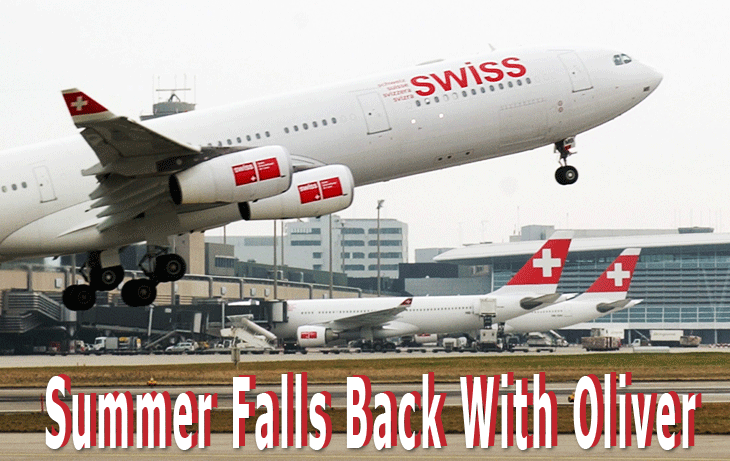

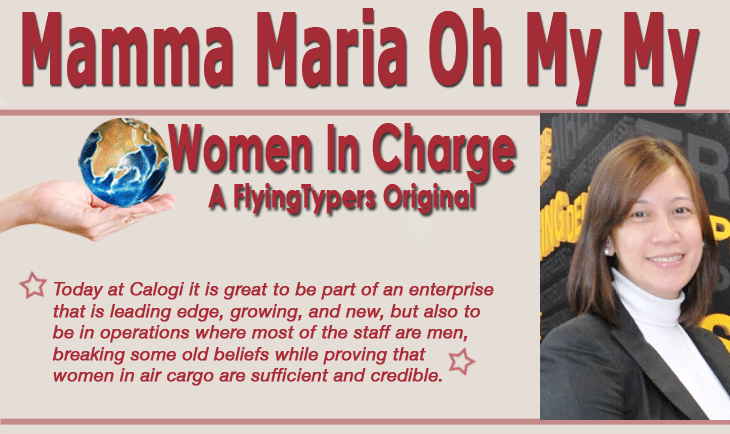
 “When
I think about my career and
daughter, I will let her decide
which career path she wants
to pursue, but I will definitely
let her know about my career
in the cargo industry.”
“When
I think about my career and
daughter, I will let her decide
which career path she wants
to pursue, but I will definitely
let her know about my career
in the cargo industry.”